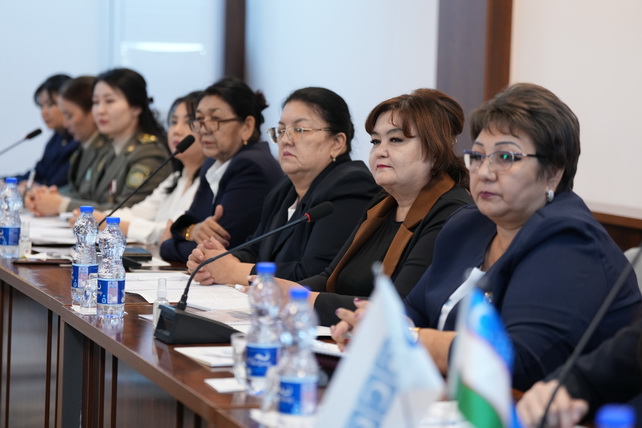
OSCE Supports Consultations on the Development of Uzbekistan’s New National Action Plan on “Women, Peace and Security”
OSCE Supports Consultations on the Development of Uzbekistan’s New National Action Plan on “Women, Peace and Security”
Tashkent, Uzbekistan (UzDaily.com) — The OSCE Project Co-ordinator in Uzbekistan, in cooperation with the National Human Rights Centre and the Committee on Family and Women’s Affairs of the Republic of Uzbekistan, organized a national discussion in Nukus on the implementation of the National Action Plan for 2022–2025, as well as consultations on the draft National Action Plan for 2026–2030 under the framework of UN Security Council Resolution 1325 “Women, Peace and Security.”
The event was part of a series of national consultations held across the regions of the country. It brought together representatives of the Committee on Family and Women’s Affairs, judges handling civil and criminal cases, officials from the Prosecutor’s Office, the Customs Committee, the National Guard, the Ministry of Internal Affairs, the Ministry of Justice, the Ministry of Health, the Ministry of Emergency Situations, the Mahalla Association, Karakalpak State University, and civil society institutions.
During the consultations, participants reviewed the results of implementing the 2022–2025 Action Plan, including achievements in protecting women from violence and enhancing their role in social and political life. They also identified priorities and discussed the key objectives of the new 2026–2030 Action Plan.
In their opening remarks, Akmal Saidov, Director of the National Human Rights Centre; Antti Karttunen, OSCE Project Co-ordinator in Uzbekistan; Mukarram Nurmatova, Deputy Chairperson of the Committee on Family and Women’s Affairs; and Bayramgul Ayimbetova, Head of the Secretariat on Family and Women’s Affairs of the Council of Ministers of Karakalpakstan, emphasized the importance of collaboration in implementing the resolution.
OSCE Project Co-ordinator Antti Karttunen stated: “Advancing gender equality is an integral element of justice and a key factor in ensuring resilience, security, and peace. UN Security Council Resolution 1325 represents not only an international commitment but also a shared moral responsibility to current and future generations.”
As a result of the discussions, the draft National Action Plan for 2026–2030 was recognized as an important instrument for further strengthening gender equality, increasing women’s participation in social and political life, and ensuring reliable protection of their rights and interests.